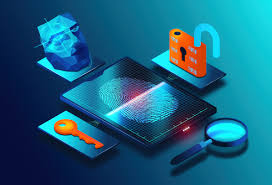In today’s digital world, passwords alone are no longer enough to protect sensitive accounts and data. Cybercriminals have become increasingly sophisticated, using tactics like phishing, credential stuffing, and brute-force attacks to steal login credentials. This is where Multi-Factor Authentication (MFA) plays a crucial role in strengthening security. MFA adds an extra layer of protection by requiring users to verify their identity using two or more authentication factors, making it significantly harder for attackers to gain unauthorized access.
MFA typically combines something you know (password or PIN), something you have (a smartphone, security key, or authentication app), and something you are (biometric data like fingerprints or facial recognition). Even if a hacker steals your password, they would still need the second factor—such as a one-time verification code sent to your phone or biometric confirmation—to access your account. This greatly reduces the risk of cyberattacks, particularly in cases of password leaks or breaches.
One of the most important benefits of MFA is its ability to protect against phishing attacks. Phishing remains one of the most common cyber threats, tricking users into revealing their passwords. With MFA in place, even if an attacker gets hold of a password, they cannot bypass the additional authentication step. This added security is crucial for businesses, financial institutions, and personal accounts that store valuable data.
Businesses and organizations benefit greatly from implementing MFA, especially when securing remote work environments. As employees access company systems from different locations, the risk of cyber threats increases. By enforcing MFA, organizations can prevent unauthorized access to company networks, confidential files, and email accounts, reducing the likelihood of data breaches and financial losses. Many compliance regulations, such as GDPR, HIPAA, and PCI-DSS, now require MFA as a security measure to protect customer and business data.
Beyond business security, MFA also helps individuals safeguard their personal accounts. Social media accounts, online banking, email services, and cloud storage all contain sensitive information that can be exploited if compromised. Activating MFA on these platforms ensures that personal and financial details remain secure, even if passwords are exposed.
While some users may find MFA inconvenient, modern authentication methods have made the process more seamless. Many platforms now offer push notifications, fingerprint recognition, and facial recognition for quick and easy verification. The small effort of enabling MFA is far outweighed by the security benefits it provides.
Ultimately, MFA is one of the simplest yet most effective cybersecurity measures available. Whether for personal or business use, enabling MFA is a critical step in reducing cyber risks. With the growing number of cyber threats, relying on passwords alone is no longer safe. By implementing MFA, users can significantly enhance their digital security, protect their accounts from unauthorized access, and prevent potential cyberattacks.
The Importance of Multi-Factor Authentication (MFA)
Posted on March 21, 2025
